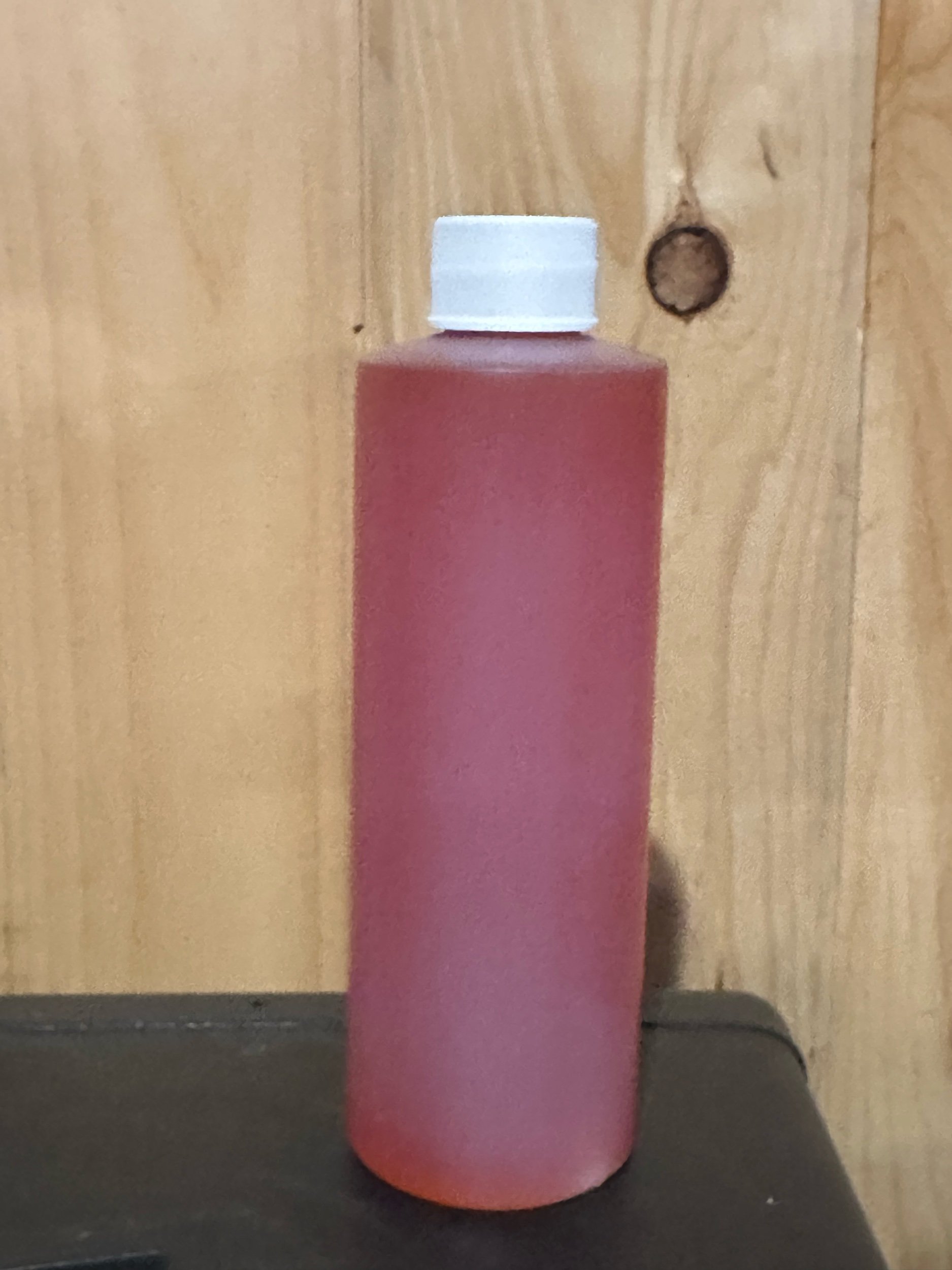Liquid Elemental Sulfur
Liquid Elemental Sulfur
Pure Elemental Sulfur Crafted through JADAM Techniques/ Principles
Jadam Sulfur (JS) – KNF Input
Ingredients: Distilled water, natural-organic sulfur powder, sodium hydroxide, red clay powder, schist (metamorphic rock), sea salt.
Usage:
May be used alone but for maximum benefits, include a Natural Soap like Dr Bronners or Jadam Wetting Agent (JWA) or other wetting agents for best results.
Caution: Some plants, like Grapes, are sensitive to JS and may burn if over-applied. Always test on a small area first.
Dilution Guide (per gallon of water):
Normal: 2–8 ml Sulfur + 20–40 ml Wetting Agent
Strong: 8 –12 ml Sulfur + 40–90 ml Wetting Agent
Winter Treatment: 12–15 ml Sulfur/ gallon H20
Application Tips:
Always mix with a wetting agent for full plant coverage.
Apply early morning or late evening to maximize leaf contact time. Avoid hot periods.
Soft water (rainwater, filtered, or pond water) works best—hard water is ineffective.
Avoid exceeding 15 ml per gallon to prevent burning.
No expiry date, but avoid continuous use, especially on young or soft plants.
This sulfur supplement is originally adopted by Youngsang Cho (JADAM). You can find the full recipe online if you'd like to make it yourself.
Sulfur is a natural element that is toxic to fungus. It is available in several formulations including a liquid spray, wettable powder/ dust and pellets. It is used for the control and prevention of black spot, rusts, leaf spots and powdery mildew on roses, other ornamentals, fruits and vegetables. It is also used less frequently as a miticide on some of the above. Sulfur disrupts the metabolic functioning of fungi and is one of the oldest known pesticides. For organic gardeners, sulfur is an important fungal disease control product. Sulfur may be used on food crops up to one day of harvest.
Cautions/Instructions: Since sulfur is abrasive to some metals, apply sprays with a plastic sprayer. Foliar injury may occur from applications made above 85 degrees F.
Toxicity: Low toxicity to humans, however, sulfur can irritate skin and eyes and spray vapors should not be inhaled. Non- toxic to birds, bees and fish.

